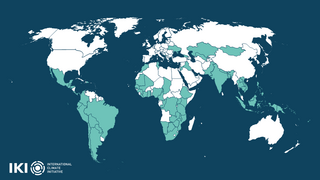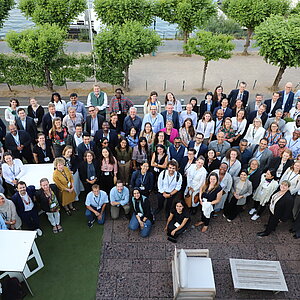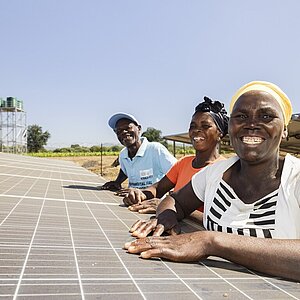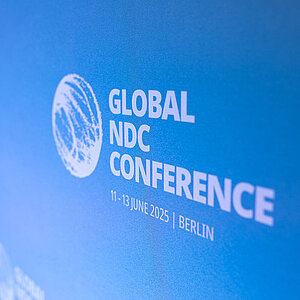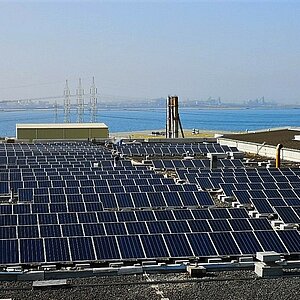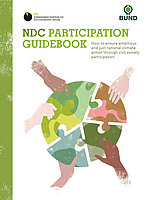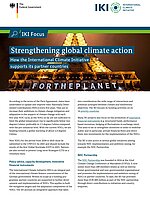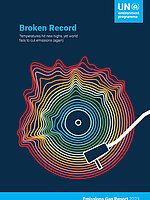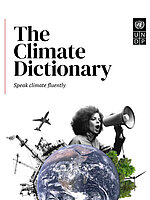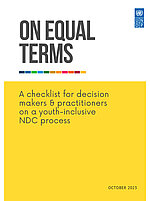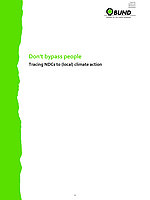Climate policy: ambitious further development and implementation of NDCs and LTSs
Prioritised field of action in the IKI funding area mitigation of greenhouse gas emissions (as of June 2025)

One focus of the International Climate Initiative (IKI) is on providing support for the policymaking frameworks in its partner countries to promote the socio-ecological transformation towards climate-neutral societies.
A central aspect of this is providing support for the partner countries in the ambitious further development and implementation of their Nationally Determined Contributions (NDCs) and Long-Term Strategies (LTS).
IKI approaches to the implementation of NDCs and LTS
Advanced economies and multilateral institutions are helping developing and emerging countries to mitigate greenhouse gas emissions and adapt better to the impacts of climate change, with the aim of achieving their respective NDCs. To this end, they are providing financial and technical support while sharing knowledge and insights.
Germany is taking a leading role here. Supporting ambitious NDCs is at the key focus of the IKI. With the IKI Strategy 2030, the IKI has set itself the target of contributing to more ambitious NDCs in at least 30 partner countries.
The IKI is currently funding 18 projects with their primary focus on NDCs (9 bilateral, 1 regional, 8 global). The approved funding volume amounts to more than EUR 274 million. The NDC portfolio is supplemented by 69 projects (45 bilateral, 9 regional, 15 global), which also contribute to NDCs due to their outputs or outcomes, but without this being their primary focus.
An analysis of the semi-annual updates of the IKI projects performed by the IKI project management agency Zukunft - Umwelt - Gesellschaft (ZUG) gGmbH for 2024 also established that 25 projects made a direct contribution to ambition raising and 20 projects made a direct contribution to the implementation of NDCs. 20 projects cooperated with the NDC partnership. A total of 74 countries were supported.
Selected projects
- Contribution to NDC Partnership for Work Programme 2021-2025, Support Unit (SU) and Partnership Action Fund (PAF)
- UNDP Climate Promise
- Support Project for the Implementation of the Paris Agreement (SPA)
- NDC Action – Facilitating implementation of climate-resilient and low-carbon development
- Initiative for Climate Action Transparency
- Laying the foundations for long-term low-emission development strategies (LTS)
International cooperation
Tools
The IKI Strategy
The IKI wants to maximise its impact on climate action and biodiversity conservation. To this end, it concentrates its funding activities on prioritised fields of action within the four funding areas. Another key element is the close cooperation with selected partner countries, especially with the IKI’s priority countries.
IKI projects
are currently working on the topic of NDCs.
countries
were supported by the IKI on the topic of NDCs.
How IKI projects provide specific support
The IKI’s projects respond to partner enquiries by providing policy advice, technical expertise for calculating emissions and support for the overall NDC process, from the creation and updating of the NDCs to their actual implementation. These activities may include the development of scenarios, country-specific requirements analyses, cost estimates, or the formulation of specific mitigation or reduction targets in various sectors. Projects from the IKI also work to develop guidelines on individual aspects of NDC implementation, organise seminars and workshops, and provide advice to interministerial working groups on the identification and involvement of key actors in climate change mitigation and adaptation to climate change.
Furthermore, the IKI supports the (further) development and implementation of LTS and the harmonisation of NDCs with LTS.
The IKI also promotes international networking, dialogue and knowledge sharing within and between ministries and between governments. Although typically working at a bilateral level, the IKI often joins multi-state projects with a largely global or regional focus. In addition, the IKI interface projects in the IKI priority countries also support the development and implementation of NDCs, depending on the political country context.
The following projects are a central aspect of the IKI portfolio:
Global NDC Conference
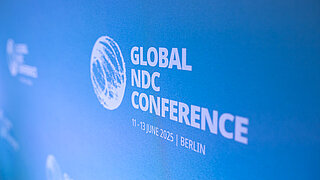
The Global NDC Conference is an international forum to discuss about Nationally Determined Contributions (NDCs), inspiring practitioners and policymakers around the world to share, lead and contribute to their country’s NDC process. The Global NDC Conference is a space for strengthening networks, showcasing innovative ideas, building momentum, reflecting, and clarifying the NDC formulation and implementation processes.
Financed by the IKI, supported by the German Federal Government, and co-organized since 2017 by Deutsche Gesellschaft für Internationale Zusammenarbeit (GIZ) GmbH, NDC Partnership and United Nations Development Progreamme (UNDP).
Publications
The link has been copied to the clipboard



